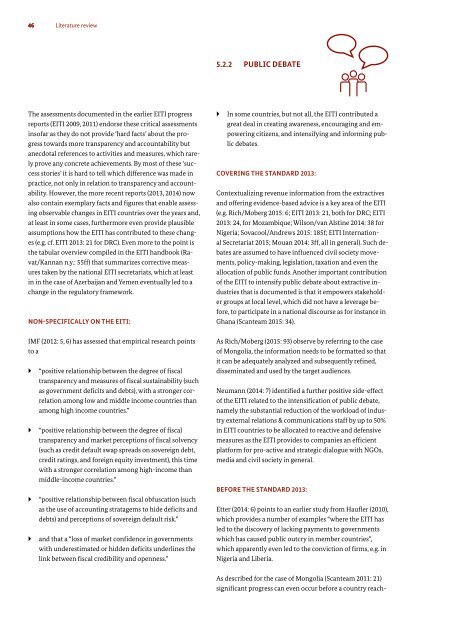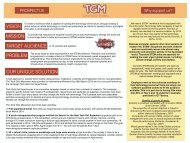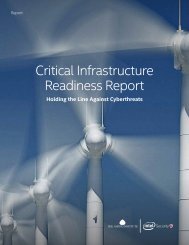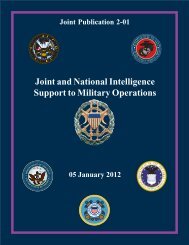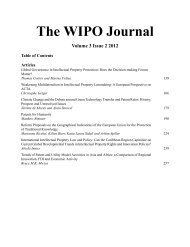Transparency Initiative (EITI)
2eoch1l
2eoch1l
Create successful ePaper yourself
Turn your PDF publications into a flip-book with our unique Google optimized e-Paper software.
46 Literature review<br />
5.2.2 PUBLIC DEBATE<br />
The assessments documented in the earlier <strong>EITI</strong> progress<br />
reports (<strong>EITI</strong> 2009, 2011) endorse these critical assessments<br />
insofar as they do not provide ‘hard facts’ about the progress<br />
towards more transparency and accountability but<br />
anecdotal references to activities and measures, which rarely<br />
prove any concrete achievements. By most of these ‘success<br />
stories’ it is hard to tell which difference was made in<br />
practice, not only in relation to transparency and accountability.<br />
However, the more recent reports (2013, 2014) now<br />
also contain exemplary facts and figures that enable assessing<br />
observable changes in <strong>EITI</strong> countries over the years and,<br />
at least in some cases, furthermore even provide plausible<br />
assumptions how the <strong>EITI</strong> has contributed to these changes<br />
(e.g. cf. <strong>EITI</strong> 2013: 21 for DRC). Even more to the point is<br />
the tabular overview compiled in the <strong>EITI</strong> handbook (Ravat/Kannan<br />
n.y.: 55ff) that summarizes corrective measures<br />
taken by the national <strong>EITI</strong> secretariats, which at least<br />
in in the case of Azerbaijan and Yemen eventually led to a<br />
change in the regulatory framework.<br />
NON-SPECIFICALLY ON THE <strong>EITI</strong>:<br />
IMF (2012: 5, 6) has assessed that empirical research points<br />
to a<br />
` `<br />
` `<br />
` `<br />
``<br />
“positive relationship between the degree of fiscal<br />
transparency and measures of fiscal sustainability (such<br />
as government deficits and debts), with a stronger correlation<br />
among low and middle income countries than<br />
among high income countries.”<br />
“positive relationship between the degree of fiscal<br />
transparency and market perceptions of fiscal solvency<br />
(such as credit default swap spreads on sovereign debt,<br />
credit ratings, and foreign equity investment), this time<br />
with a stronger correlation among high-income than<br />
middle-income countries.”<br />
“positive relationship between fiscal obfuscation (such<br />
as the use of accounting stratagems to hide deficits and<br />
debts) and perceptions of sovereign default risk.”<br />
and that a “loss of market confidence in governments<br />
with underestimated or hidden deficits underlines the<br />
link between fiscal credibility and openness.”<br />
``<br />
In some countries, but not all, the <strong>EITI</strong> contributed a<br />
great deal in creating awareness, encouraging and empowering<br />
citizens, and intensifying and informing public<br />
debates.<br />
COVERING THE STANDARD 2013:<br />
Contextualizing revenue information from the extractives<br />
and offering evidence-based advice is a key area of the <strong>EITI</strong><br />
(e.g. Rich/Moberg 2015: 6; <strong>EITI</strong> 2013: 21, both for DRC; <strong>EITI</strong><br />
2013: 24, for Mozambique; Wilson/van Alstine 2014: 38 for<br />
Nigeria; Sovacool/Andrews 2015: 185f; <strong>EITI</strong> International<br />
Secretariat 2015; Mouan 2014: 3ff, all in general). Such debates<br />
are assumed to have influenced civil society movements,<br />
policy-making, legislation, taxation and even the<br />
allocation of public funds. Another important contribution<br />
of the <strong>EITI</strong> to intensify public debate about extractive industries<br />
that is documented is that it empowers stakeholder<br />
groups at local level, which did not have a leverage before,<br />
to participate in a national discourse as for instance in<br />
Ghana (Scanteam 2015: 34).<br />
As Rich/Moberg (2015: 93) observe by referring to the case<br />
of Mongolia, the information needs to be formatted so that<br />
it can be adequately analyzed and subsequently refined,<br />
disseminated and used by the target audiences.<br />
Neumann (2014: 7) identified a further positive side-effect<br />
of the <strong>EITI</strong> related to the intensification of public debate,<br />
namely the substantial reduction of the workload of industry<br />
external relations & communications staff by up to 50%<br />
in <strong>EITI</strong> countries to be allocated to reactive and defensive<br />
measures as the <strong>EITI</strong> provides to companies an efficient<br />
platform for pro-active and strategic dialogue with NGOs,<br />
media and civil society in general.<br />
BEFORE THE STANDARD 2013:<br />
Etter (2014: 6) points to an earlier study from Haufler (2010),<br />
which provides a number of examples “where the <strong>EITI</strong> has<br />
led to the discovery of lacking payments to governments<br />
which has caused public outcry in member countries”,<br />
which apparently even led to the conviction of firms, e.g. in<br />
Nigeria and Liberia.<br />
As described for the case of Mongolia (Scanteam 2011: 21)<br />
significant progress can even occur before a country reach-


